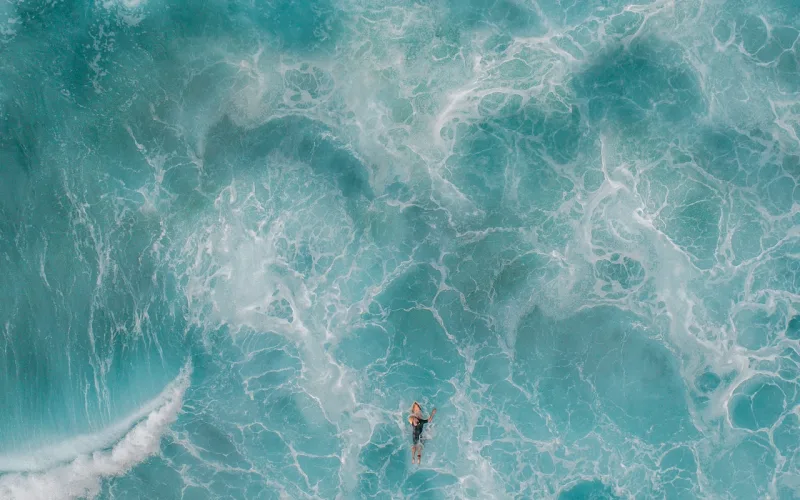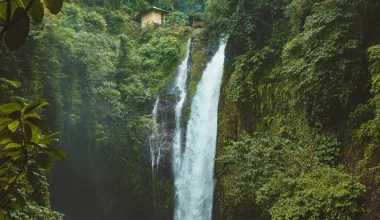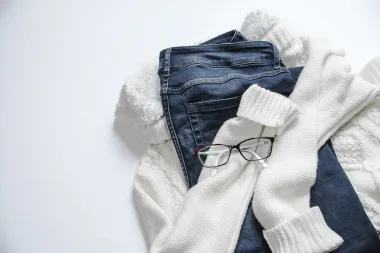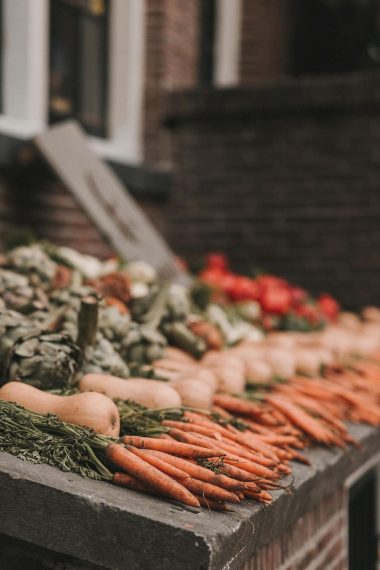Last Updated on June 1, 2023 by Ecologica Life
As we mentioned in our previous article, water is a commodity that is poorly managed around the world. We rely on water for drinking, cleaning, agriculture and much more. We therefore need to focus our science, technology and policies to better manage this resource.
At Ecologica.life we believe in leading by example. We should not only focus our efforts on global water management, but also on conserving water in our everyday lives.
That is why we have written 16 simple tips to help you save water in your life.
1. Take Shorter Showers
What is the average length of a shower? According to the Environmental Protection Agency, the average shower time is eight minutes.
The recommended maximum shower time is 5 to 10 minutes. Too much or too little can have negative consequences for our bodies.
According to Healthline, shorter, lukewarm showers are recommended, especially if you have dry skin or eczema, as this helps to reduce inflammation. Long, hot showers can deplete the skin of its natural oils and dehydrate it.
The average shower uses about 7-8 litres of water per minute. So cutting down on your shower time by even a few minutes can make a big difference to the amount of water you use.
As well as saving water, taking shorter showers helps the environment by saving energy! It takes energy to treat water, bring it to your home and heat it. So saving water therefore saves energy and therefore money!
2. Take Cold Showers
By taking a cold shower, you are much less likely to linger after you are clean, which saves water. And, of course, the energy you save is doubled by using less water and not heating it.
No way! I hear you say. I am not going to go through that ordeal just to save a little water and energy.
Fair enough, but did you know that there are health benefits to bathing in cold temperatures? We are not talking about guru-made-up benefits. There is real scientific evidence that cold showers improve circulation, boost the immune system and increase vitality. One randomised controlled trial reported a 29% reduction in self-reported sickness absence after switching to cold showers.
Many benefits have been reported from cold showers, and although scientists don’t fully agree on the mechanism behind it, it may have something to do with giving your cardiovascular system a workout. Cold showers send the blood to the core of your body, causing your blood vessels contract rapidly. The fact is, we’ve evolved to bathe in cold water over millions of years, so it makes sense that it’s not bad for us.
how to take a cold shower you ask? We at Ecologica.life have tried it ourselves because we didn’t want to recommend something without having tried it ourselves.
We recommended starting small, taking a warm shower and slowly reducing the temperature. The first time it is a bit hard but we found that after doing it a few times your body adapts and I for one now prefer cold showers, if that sounds strange to you believe me it would have been for me not so long ago.
3. Turning off the Tap
When you brush your teeth, shave or wash your face, turn off the tap instead of leaving it running. This can save several litres of water a day, and it’s an easy habit to get into.
4. Reuse Water
Think about ways to reuse water in your home. For example, you can use grey water (water from showers, sinks, and washing machines) to water plants or flush the toilet.
You can also collect and reuse the water that you use to wash vegetables or rinse dishes.
5. Don’t Use Water to Defrost food
You can defrost frozen food in the refrigerator overnight.
6. Use a Broom
When cleaning outdoor areas such as driveways and pavements, use a broom instead of a hose to remove debris. Hosing down these areas can waste a lot of water, and using a brush is just as effective.
7. Water Your Lawn Wisely
If you have a lawn or garden, there are a couple of ways you can reduce the amount of water you use and still keep it green. Firstly, water your lawn early in the morning or later in the evening to minimise evaporation.
Secondly, use a timer to make sure you don’t overwater your lawn.
8. Use Mulch
Using mulch in your garden can help retain moisture in the soil, reducing the need for watering. In addition, adding compost to the soil can improve its water-holding capacity, further reducing water use.
9. Rainwater Harvesting
You could consider building your own rainwater harvesting system to become more water efficient. This can be certainly useful in rainy places like the UK.
Water harvested from rainwater should not be drunk unless you have the equipment to purify it. This is because rainwater can be contaminated with pollutants or bacteria as it falls.
Rainwater can therefore only be used for things like gardening, installing a rainwater harvesting system could save up to 5000 litres of water a year, your plants will thank you for it!
10. Fix Leaks
One of the easiest ways to save water is to fix any leaks in your home. Even a small leak in a faucet or toilet can waste thousands of litres of water per month.
Check your plumbing regularly for leaks and have them repaired as soon as possible.
There you have it. There are many simple and effective ways to save water in your everyday life. Small changes can help to conserve this essential resource and ensure that it’s available for generations to come.
11. Only Use a Full Dishwasher
Believe it or not, using a dishwasher can actually save water compared to washing dishes by hand. Dishwashers use less water and energy than hand washing, especially if you only run the dishwasher when it’s full.
12. Don’t Use a Running Tap to Wash Vegetables
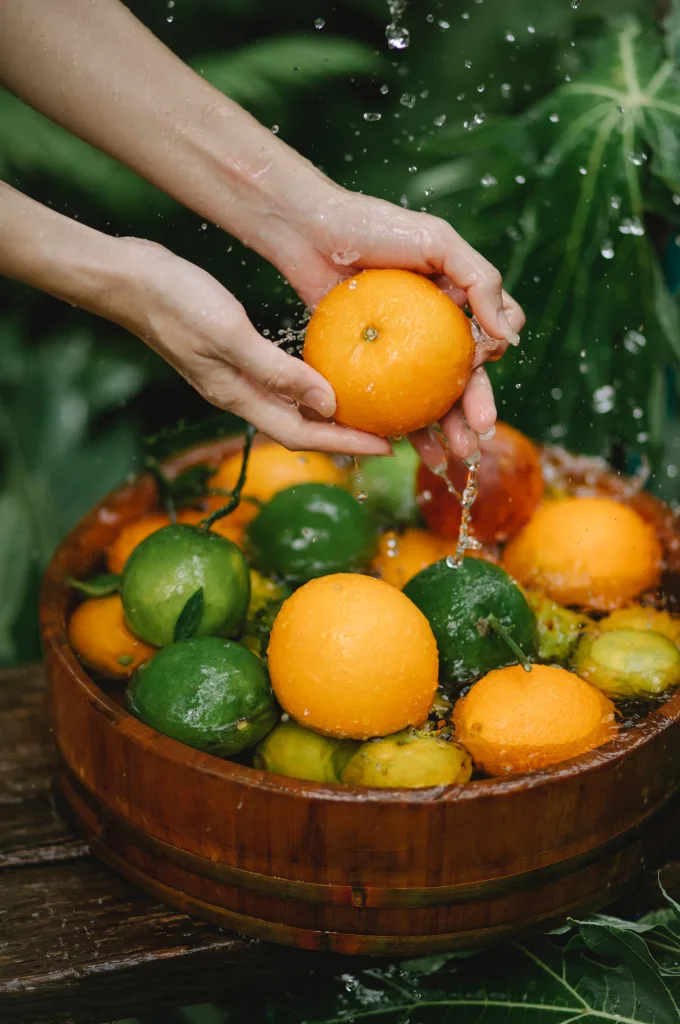
13. Keep a Jug of Water in the Fridge
This will put an end to the wasteful practice of cooling tap water by letting the water run. We recommend using a glass pitcher rather than a plastic one to reduce plastic and microplastic contamination.
14. Fill the Kettle Only When Needed
You can save water and energy by only filling the kettle with what you need, and most kettles have indicators that tell you how much water to use for each cup.
15. Reduce Food Waste
Our cereals, fruit and other foods require a lot of water to produce.
More than half of the 7 million tonnes of food and drink that British households throw away each year could have been consumed. Buying and using only what we need will save water and money!
16. Eat Less Meat and Dairy
The meat and dairy industries have huge water and carbon footprints. Try cutting back or going vegan altogether, it has some surprising benefits.
